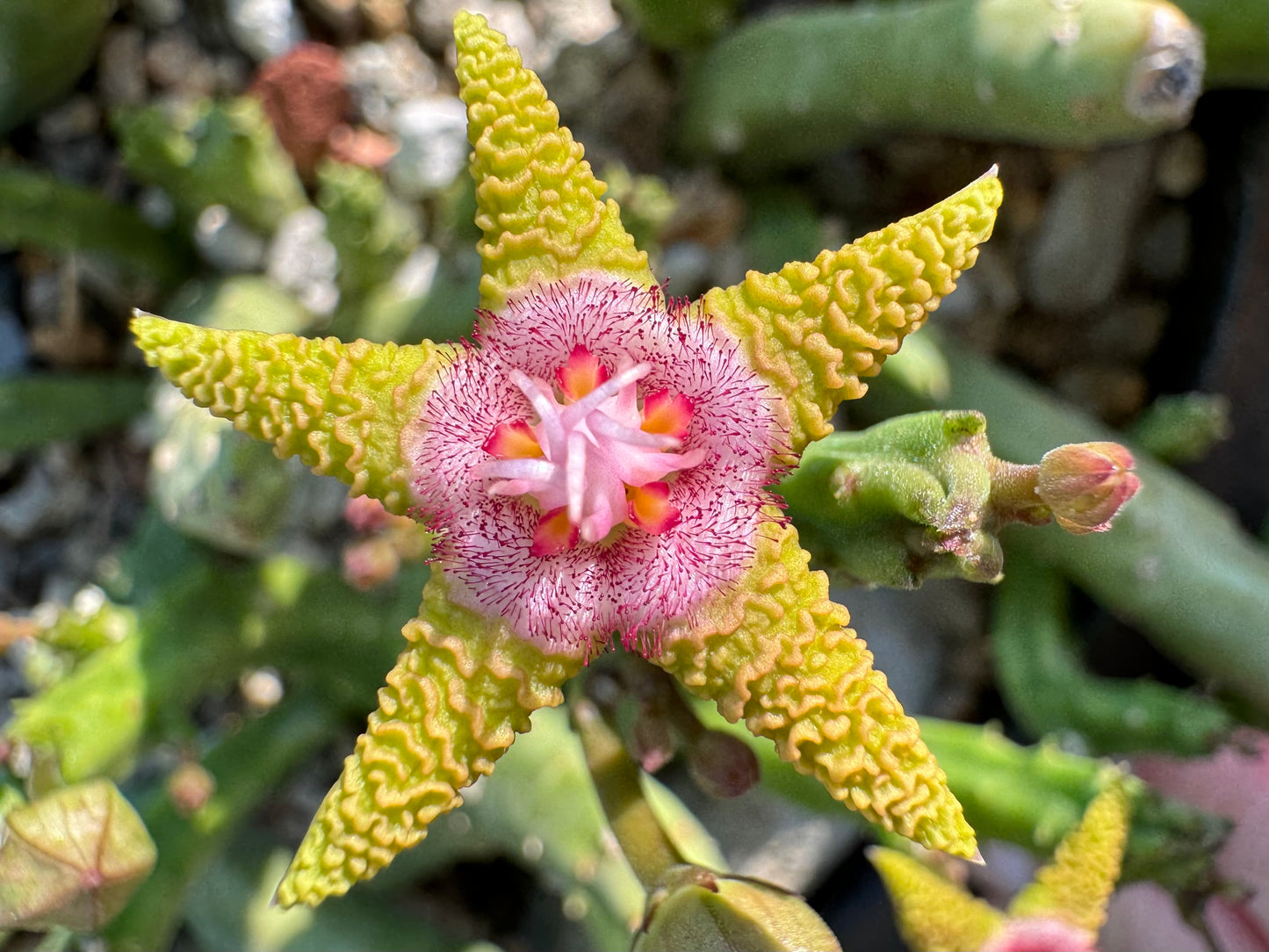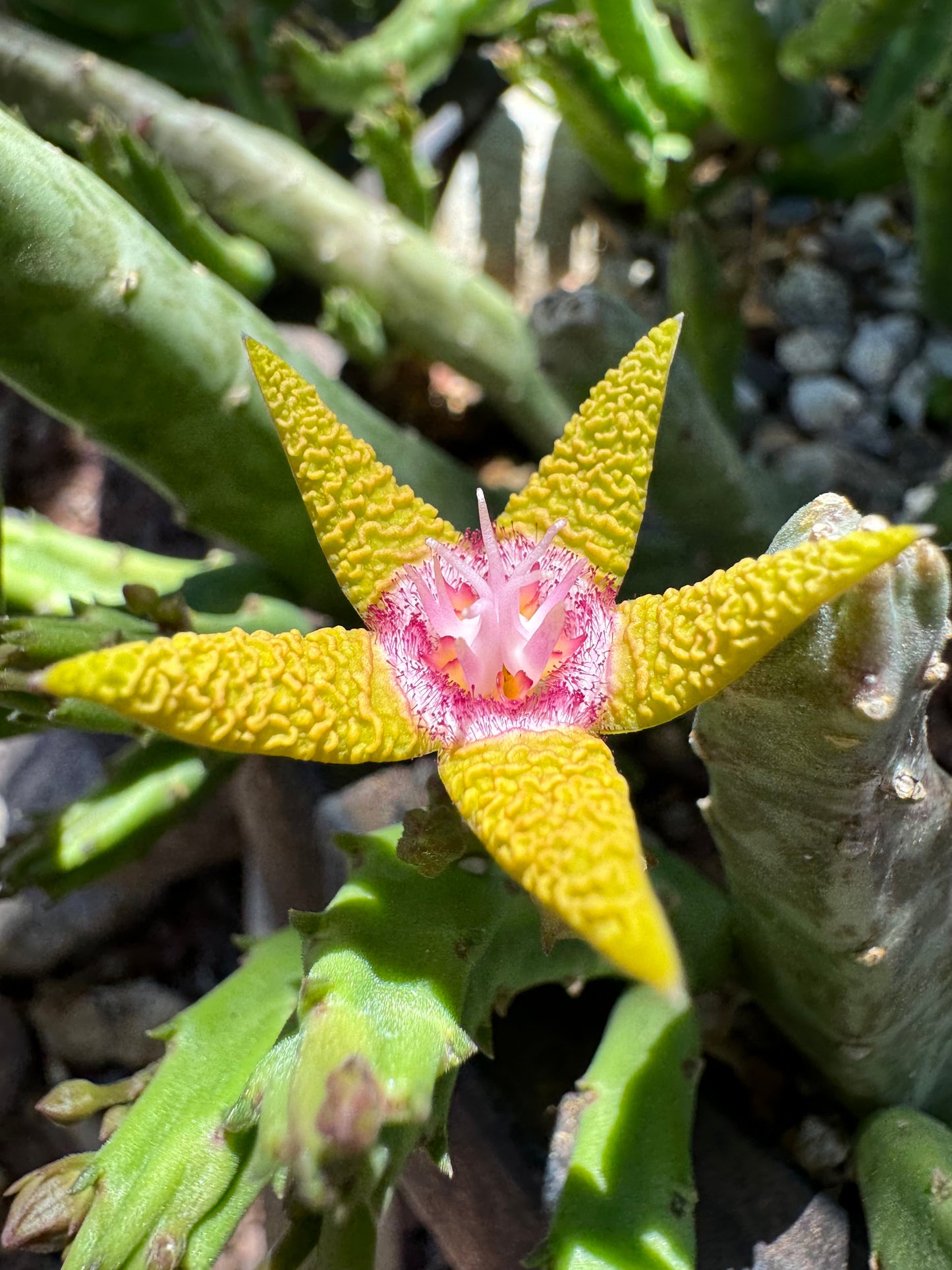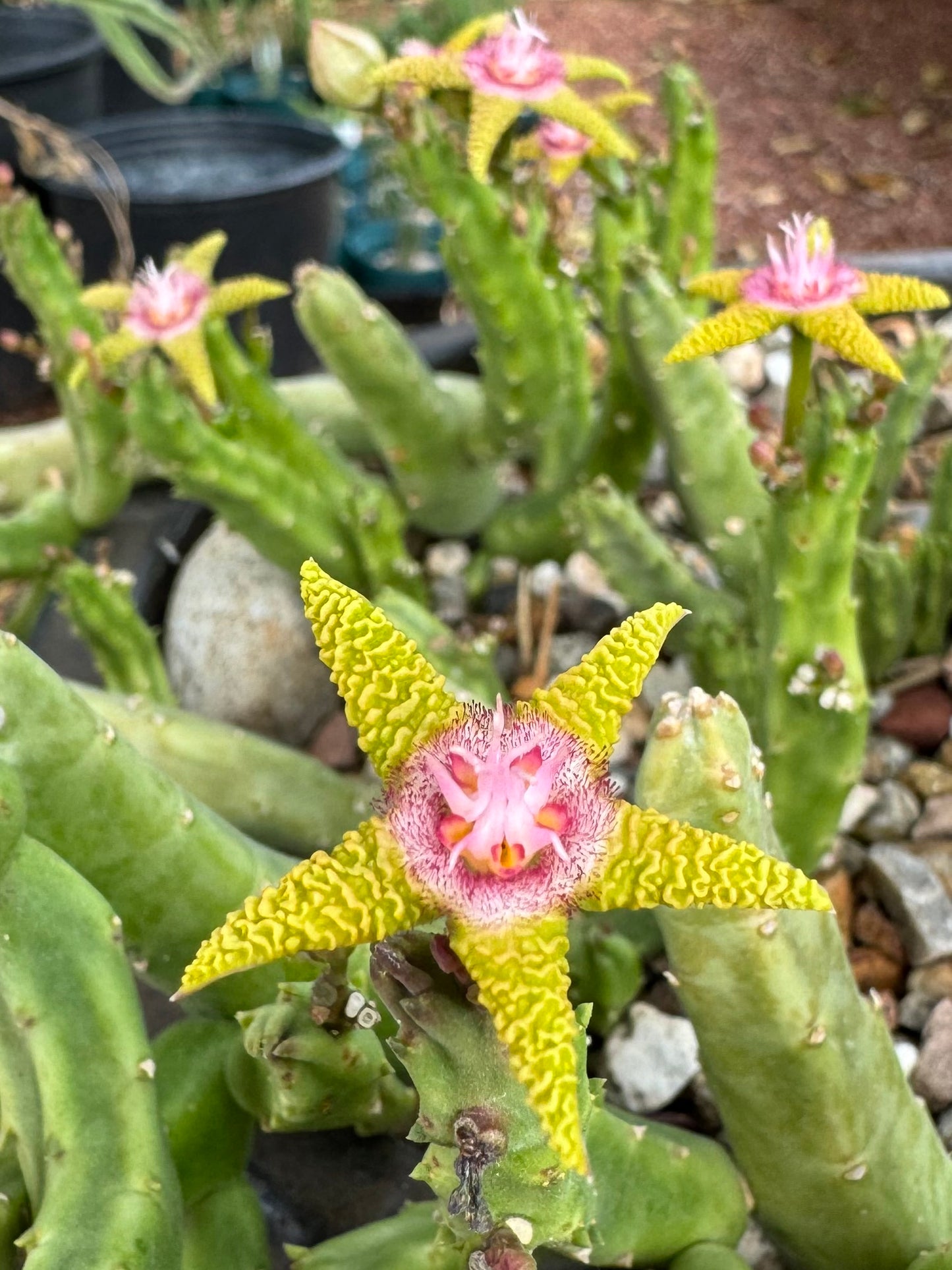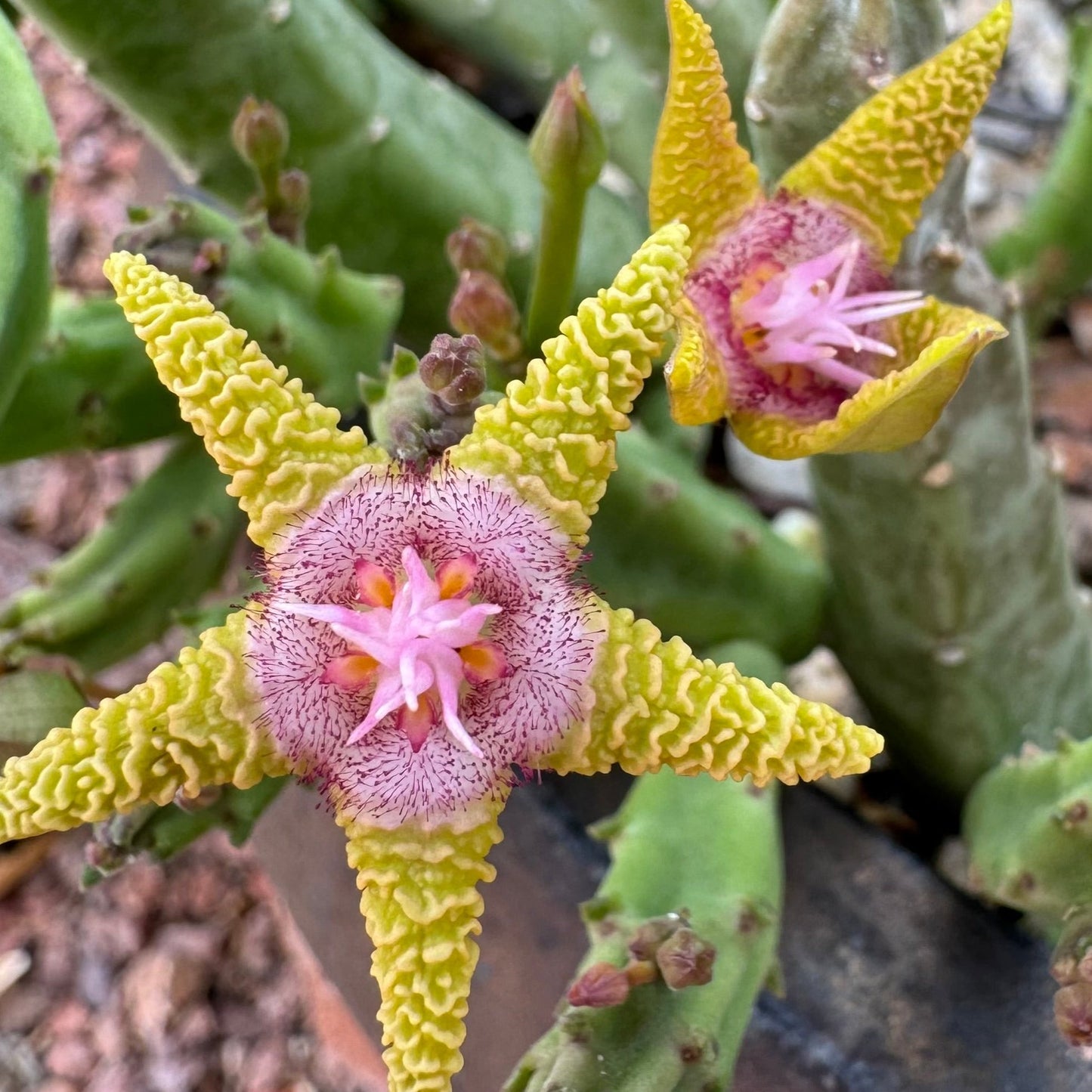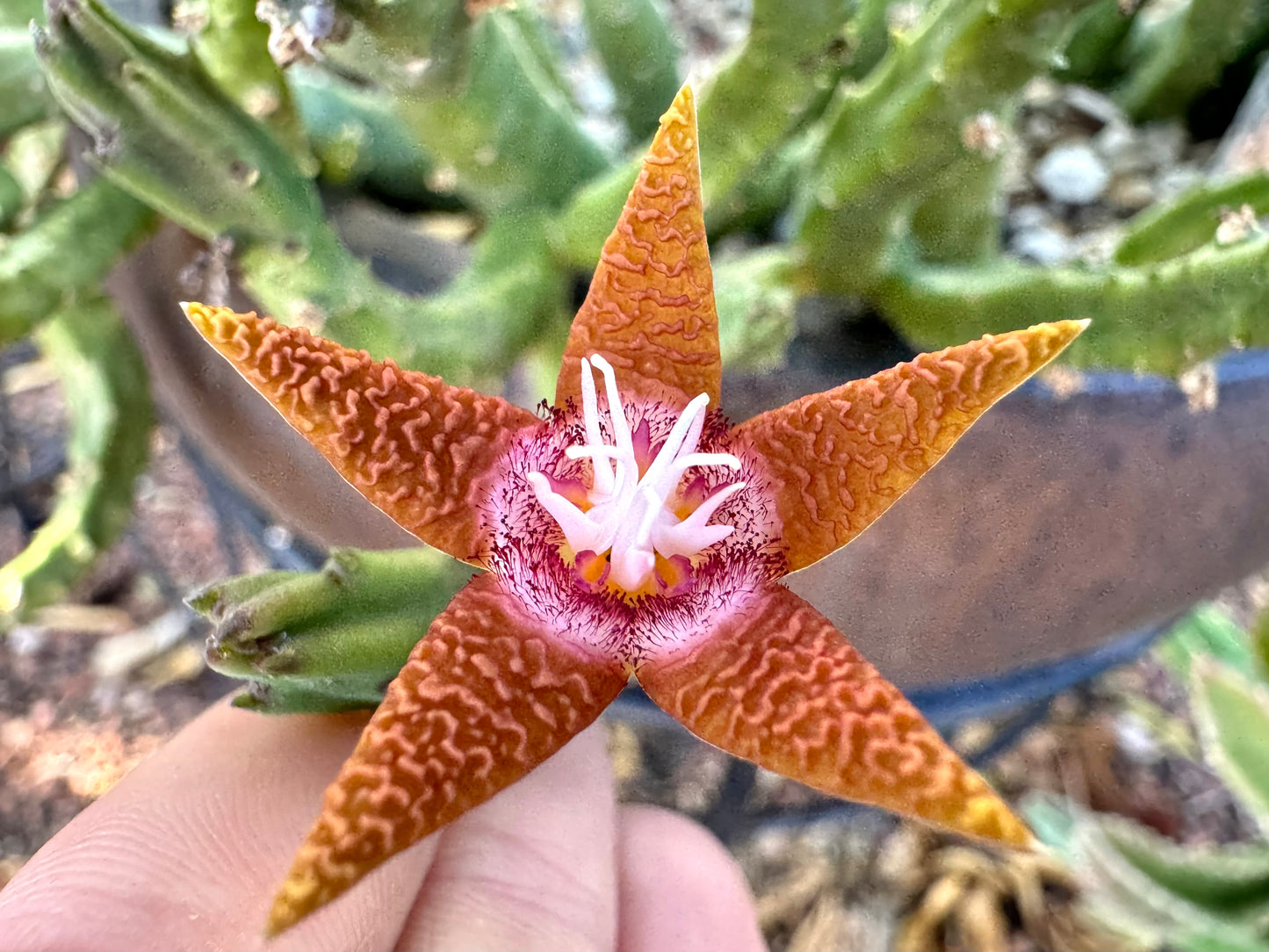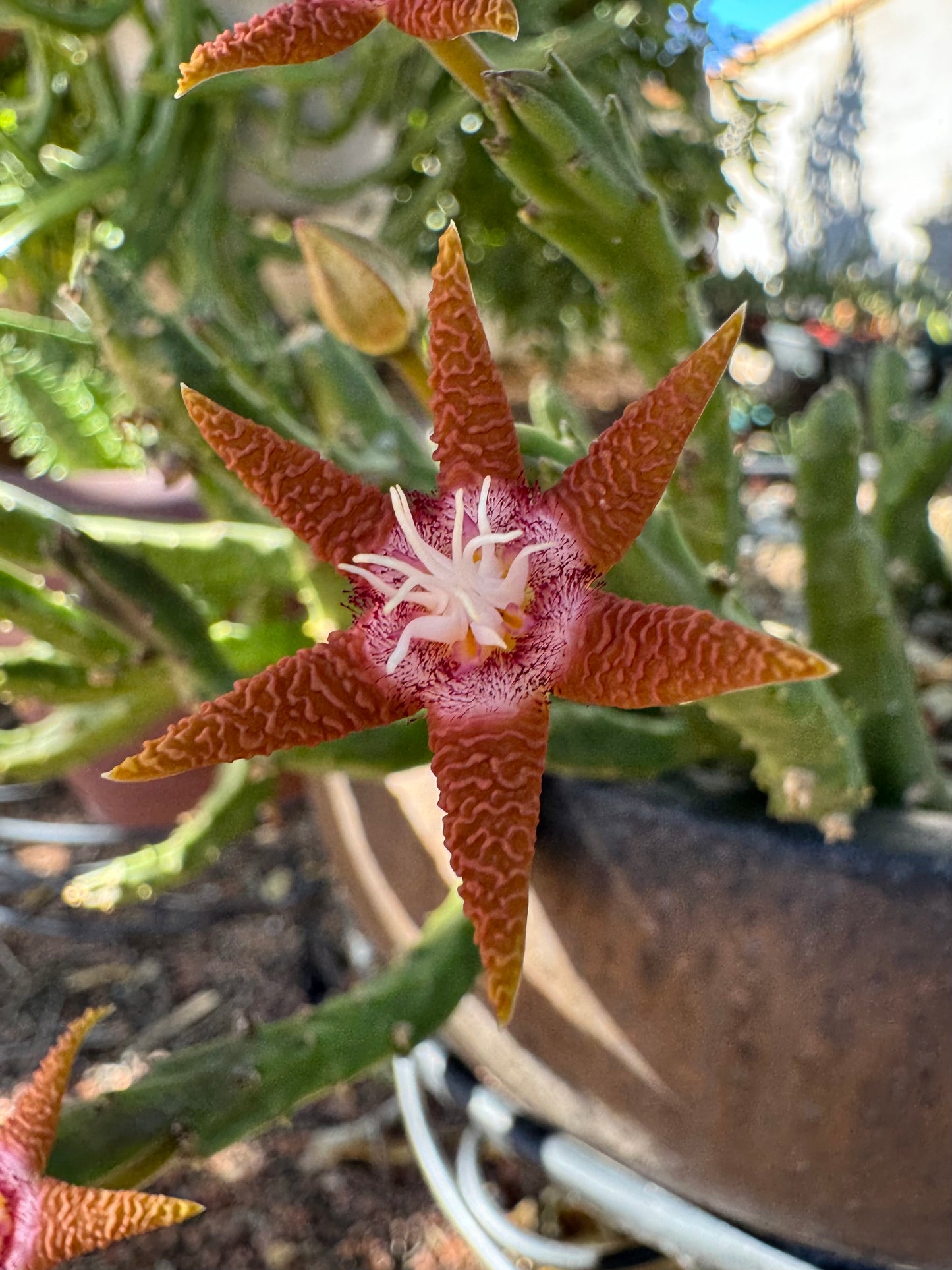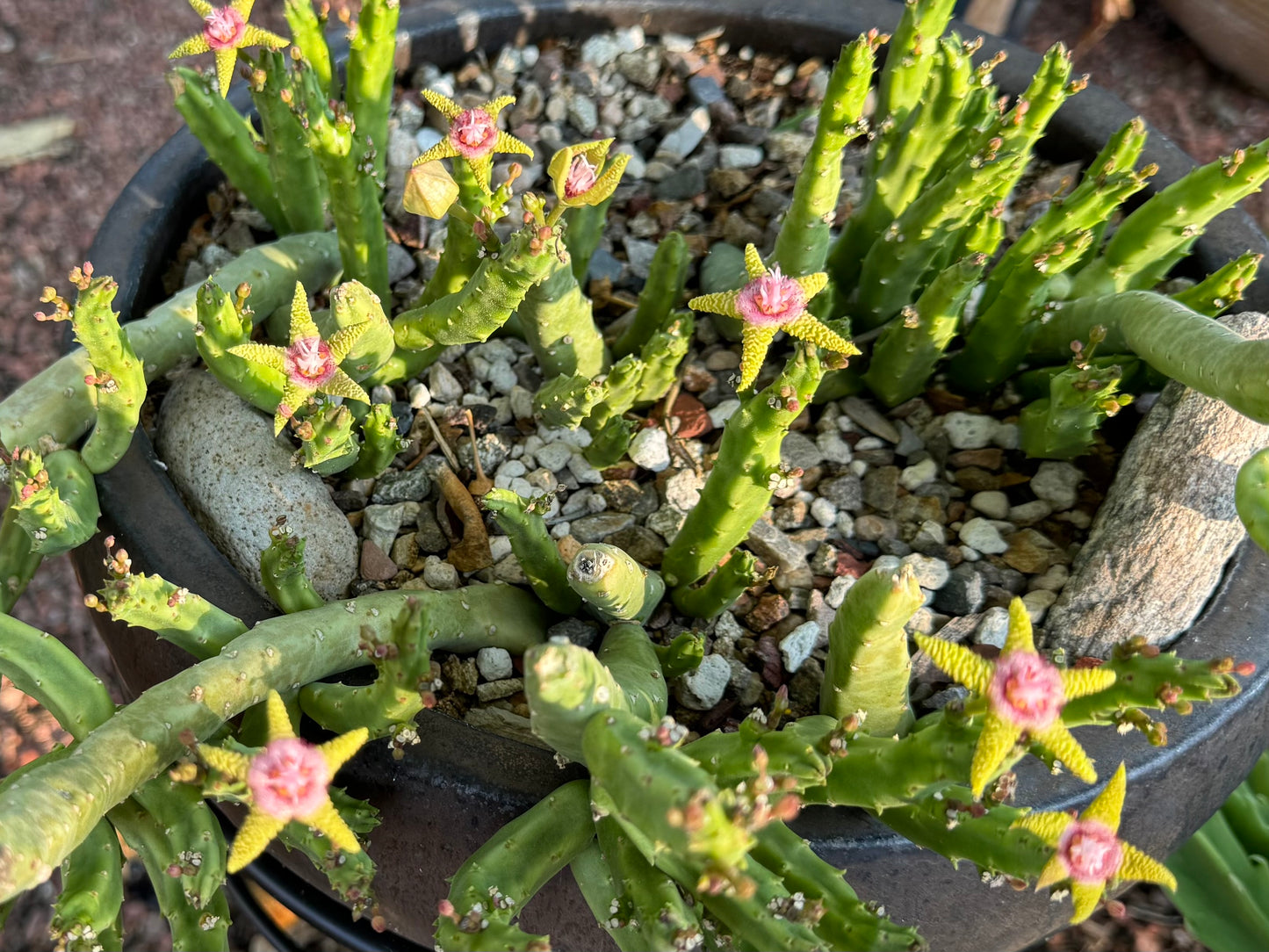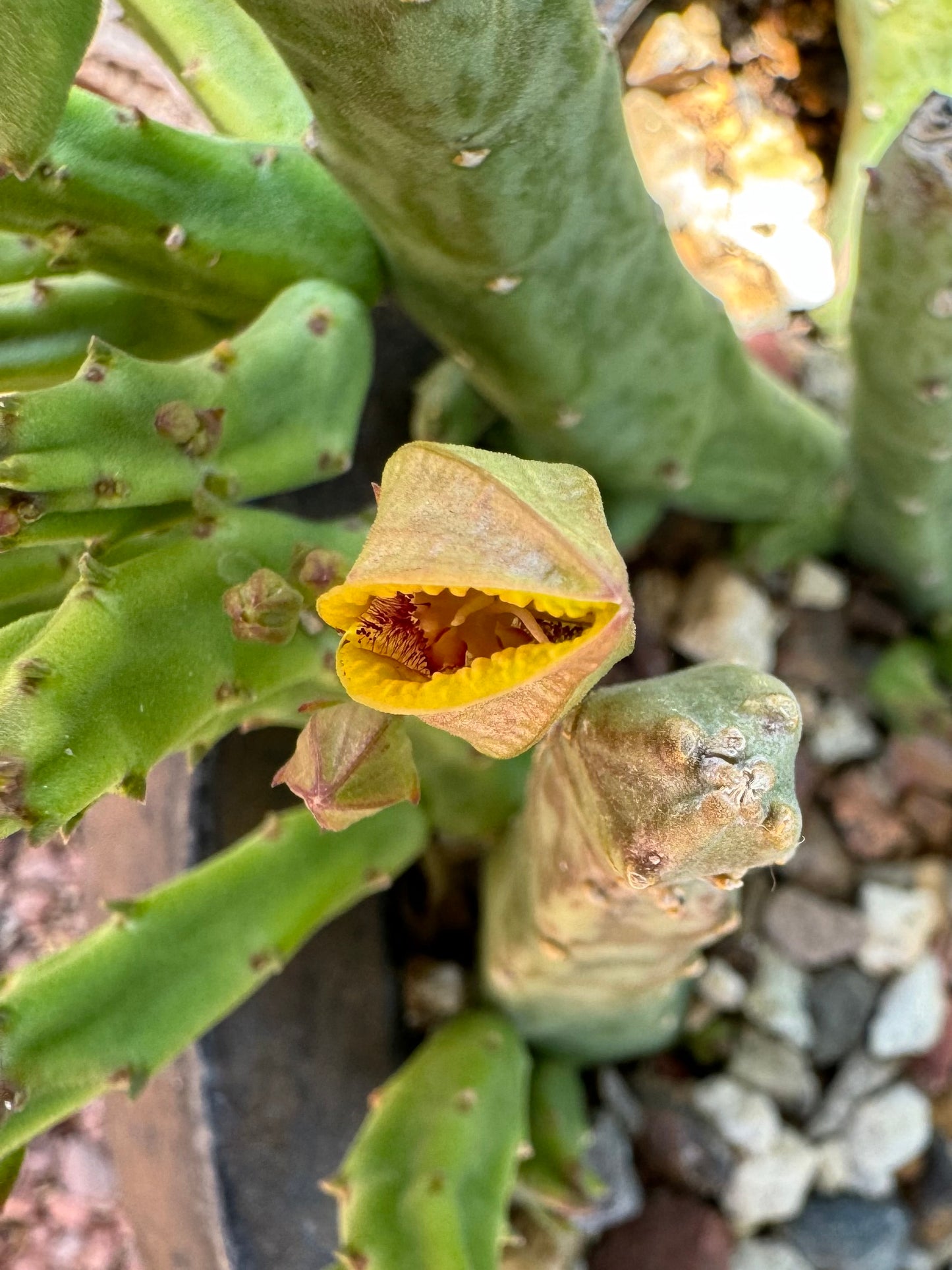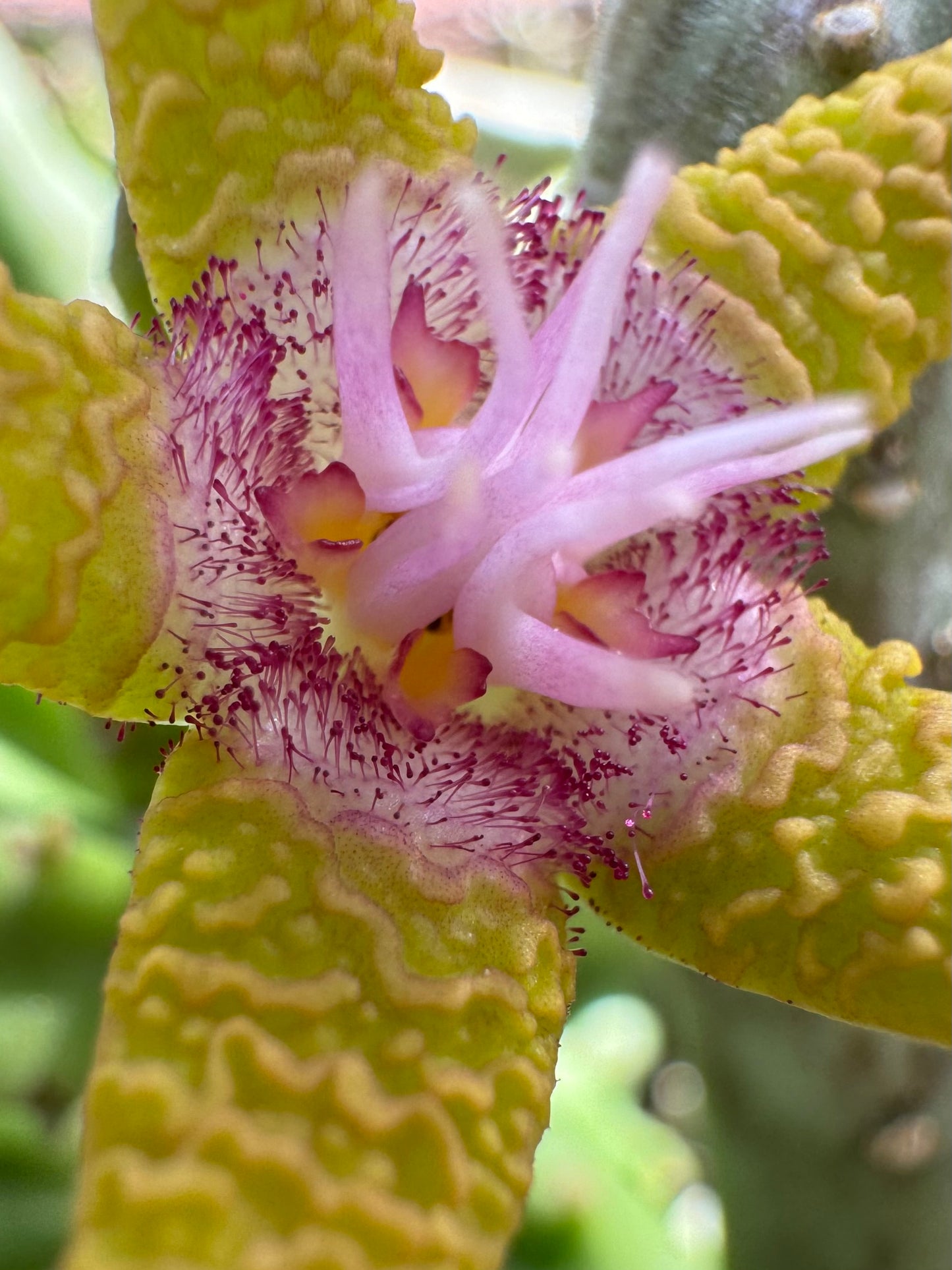⚠️ Plants cannot ship to CA, FL, HI, or US territories
Stapelia flavopurpurea
Stapelia flavopurpurea
Couldn't load pickup availability
Family Apocynaceae
Subfamily Asclepiadoideae
Tribe Ceropegieae
Genus Stapelia
Species flavopurpurea
Stapelia flavopurpurea has an incredible flower, a bright lime green star with a dewy pink center. The species can produce a range of tones from deeper lime green to red-pink petal colors, even with different colors on the same plant. This plant to date has only produced the light yellow-lime petal color shown in images, with instances of a red-tinged flower occurring in colder weather.
This stapelia produces a lot of flowers in its peak season. I counted over seventy buds on the plant at one point; several will bloom at once and fade over a few days, taking turns like a fireworks show. This stapelia is known for being a rare pleasant-smelling stapeliad. It has a lovely scent like honey with a sharp note to it, like spices or tamarind.
Flavopurpurea is lucky the flowers are nice because it doesn't have the most attractive growth form the rest of the time. It has long green splotchy stems with awkward growth forms. It can be a bit of a slow grower, putting on stubby stems in fits and spurts. Stem ends can easily snap off, leaving a scarred stump. Just give it time, it'll look better when it's a bit more filled in!
Options: The "parent" plant you will receive a cutting from is pictured. Options are a cutting measuring at least two inches, rooted or unrooted.
| Growth habit |
Crawling, forms long slender stems that trail or hang, and branch all along the length |
| Size | Stems approximately a centimeter across, easily reach a few inches but given time can reach approx 8 inches or longer |
| Light | Filtered sun, under a tree or shade cloth |
| Water | Occasional water in growing season, allow to dry between waterings; leave dry over winter |
| Overwintering | Tolerates 40°F, does best overwintering in a greenhouse |
| Flowers | Heavy blooms in the spring to early summer and again in the fall |
| Scent profile |
Honeycomb with a bit of a kick like tamarind |
| Native to |
South Africa, Namibia, Botswana |
| Conservation risk status | Least Concern (LC) |
